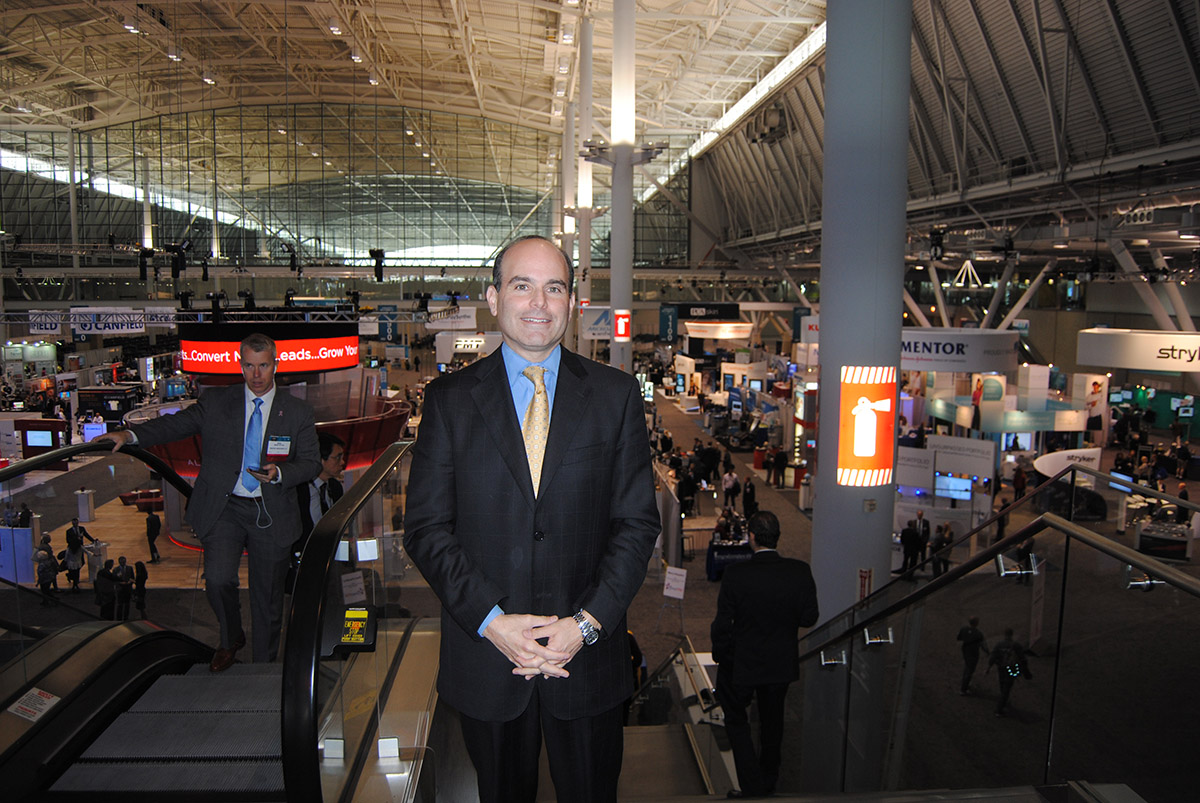Plastic Surgery the Meeting Holds First-Ever Panel on Gender Confirmation Surgery

Dr. Loren Schechter at the conference. Photo provided to bostonmagazine.com
For the first time in its 89-year history, Plastic Surgery the Meeting held a panel about gender confirmation surgery on Monday.
The conference, held from October 16 to 20 at the Boston Convention and Exhibition Center, is considered the premiere plastic surgery event nationwide, and is attended by doctors from nearly 50 countries. Topics run the gamut from women in leadership roles to educational workshops for surgeons—but it has never before included talks about transgender surgery.
“It’s really a surgery that’s been taken out of the shadows and is now being presented at mainstream meetings and highlighted at these meetings,” says Loren Schechter, a plastic surgeon at Chicago Medical School who moderated the panel. “Caitlyn Jenner has done so much to de-stigmatize the population, [to show] that highly achieving, highly successful people can be struggling with issues relating to gender.”
Schechter also notes that positive media coverage about gender confirmation has led to a huge increases in both public exposure and the procedure’s frequency. Five years ago, Schechter says, he performed 25 or 30 gender confirmation surgeries annually; he’s on track to do about 200 by the end of 2015.
“We don’t have a good understanding of the prevalence and incidence [of gender dysphoria, the condition that typically leads to gender confirmation surgery] in the population,” Schechter says. “I think the numbers we’ve traditionally been discussing are way too low. The barriers have been access to care, but as the barriers are removed, we’ll get a better understanding of how many individuals are seeking surgery.”
Schechter says surgical techniques are also rapidly progressing, as is earlier treatment of gender dysphoria. “The areas of interest are also in the adolescent population and in blocking many of the developments of secondary sexual characteristics,” Schechter says. “As people get treated earlier, we may not see as much facial surgery because they won’t develop many of those [features] that they’re trying to get rid of.”
In addition to Schechter and several doctors lecturing on the mechanics of gender confirmation surgery, the panel included a talk from Dr. Randi Ettner, an Illinois-based psychologist and transgender specialist. Ettner spoke about the need for proper mental health consultation when recommending patients for gender confirmation procedures, noting that many patients are not evaluated by mental health providers who know them well before surgery.
“Optimal care for this population really requires a cooperation between mental health providers, primary care providers, and the surgeon,” Ettner said on the panel.
Ettner also noted that assessing patients’ gender dysphoria is difficult, and that there’s no right question or right answer to determine if a patient is well-suited for surgery. “Part of the paradigm shift was created because we realize this is a continuum,” she said. “Everyone’s gender is as unique as a fingerprint.”


